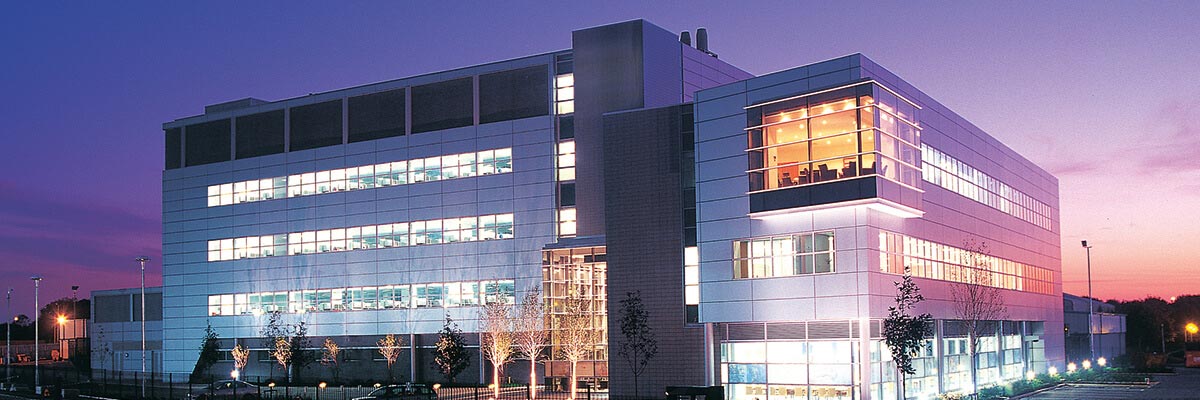- Commercialisation
- Business Engagement
- Access our Expertise
- Advanced Manufacturing Innovation Centre
- Alumni
- Business Alliance
- Campus
- Chief Executives' Club
- Consultancy and Technical Services
- Eventus, Culture and Arts
- Facilities
- Graduate School
- Events
- Innovation Programmes
- iREACH Health
- Knowledge Transfer Partnerships
- Leadership Institute
- Momentum One Zero
- Pathway Opportunity Programme
- Philanthropy
- QUBIS
- Queen's Business School
- Recruiting Talent
- Volunteer
Case studies

KTP: Almac Drug Discovery Collaboration
Breaking down traditional industry-academia boundaries in order to develop products for patients.
The long-established relationship between Queen’s and the Almac Group took a huge stride forward during 2013. ALM201, which is one of the first novel cancer drug candidates fully developed in Northern Ireland, is based on the work of Professor Tracy Robson in collaboration with Almac Discovery. This work has also paved the way for a joint programme in cancer discovery involving the Centre for Cancer Research and Cell Biology (CCRCB) and Almac Discovery.
The development of academic-industry partnerships is of key strategic importance to Queen’s as it translates basic research into commercial output. Launched in September 2013, this £13m collaboration represents a major investment by the University, Almac and Invest NI in translational life sciences research.
The programme is integrating Queen’s academic and clinical researchers with some of Almac’s most experienced drug discovery scientists. A total of 17 Almac staff are seconded, for three years, to the University, centred in CCRCB and the David Keir Building. As part of the collaboration, the new McClay Chair in Medicinal Chemistry has been established at the CCRCB and professor Tim Harrison from Almac Discovery is the inaugural holder of the post.
Professor David Waugh, who heads CCRCB, says, ‘We’re taking academic expertise and partnering it with expertise in the private sector. It’s changing the mind-set of our academics and we’re pushing programmes forward. For this kind of academic/industrial hybrid model to work, we have to manage the expectations of both partners so that we each get what we need out of the programme. It’s also important that we really do work together. It’s not a question of two teams working separately. We’re breaking down traditional industry-academia boundaries in order to develop products for patients.’
Frances Weldon, Business Alliance Manager for Medicine, Health and Life Sciences, is the liaison officer for the programme. She says, ‘The vision is that the current collaborative R&D project isn’t just a one-off. Having a drug discovery programme aligned with research in the CCRCB and the wider University is something we hope to sustain. We’re also attracting the interest of companies beyond Northern Ireland with this kind of open innovation and it helps us to deliver the translational research which we promote here.’
In November 2013, CCRCB and Almac Discovery held an off-site retreat with 30 people involved in the programme. Frances says, ‘It was a case of two minds coming together, each with an appreciation of the other. Part of my role is to ensure that this interaction continues. There was an open exchange of information and there are plans for follow-on workshops as well as meetings to follow up on potential new collaborations.’
David Waugh says, ‘We want to see part of the revenue which we hope to see generated through the programme reinvested in the research pipeline and we want to develop more opportunities for collaboration based on this model. Everyone involved in this kind of programme can benefit from it but ultimately the patients will benefit the most.’
- Almac Group
- Professor David Waugh
- Collaborative research funding